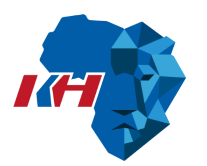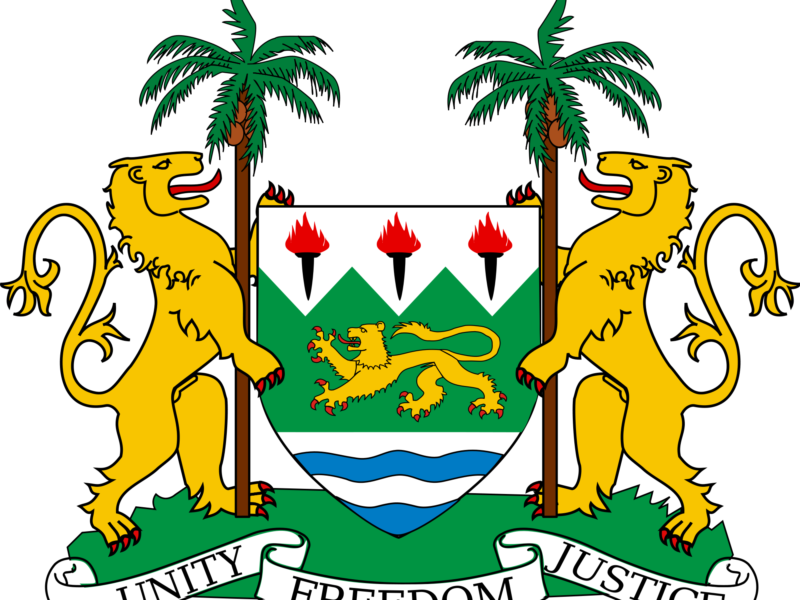Statement by Hon IB Kargbo at the official launch of the National ICT Advisory Council
Statement by Honourable Alhaji Ibrahim Ben Kargbo, Minister of Information and Communication on the Official launch of the National ICT Advisory Council at Miatta Conference Center on 11 January 2011
Mr. Chairman, Your Excellency, the President of the Republic of Sierra Leone, Dr. Ernest Bai Koroma, Honourable Vice President, Chief Samuel Sam Sumana, Your worship the Mayor of the Municipality of Freetown, Our Lady the Chief Justice, Colleague Ministers of Government, Members of Parliament, Our traditional leaders, Members of the Diplomatic and Consular corps, Permanent Secretaries and other senior Government functionaries, Members of the National ICT Advisory Council, Members of the Fourth Estate, Ladies and gentlemen,There is a wide disparity between ECOWAS countries in terms of availability of telecommunications infrastructure and services besides mobile telephony. According to the 2003 World Telecommunication Development Report, the average tele-density is two lines per 100 inhabitants and only 0.6 percent of internet users worldwide are in sub-Saharan Africa.
Since the cessation of hostility in 2002, Sierra Leone experienced significant economic growth but missed the opportunity of connecting to the SAT3 fiber optic cable spanning along the coast of West Africa. The urgent need to catch up with the global and regional telecommunication trends had a boost due to low licensing fees and lack of a central regulator. This resulted in meaningful growth of mobile telephone services, but the penetration levels remained low with much market opportunity especially in the rural telephony.
The enactment of the Telecommunications Act 2006 established the National Telecommunications Commission (NATCOM) to provide for licensing and regulation of the telecommunications operators and for the promotion of universal access to basic telecommunications services. Also NATCOM is tasked with ensuring fair competition for the benefit of investors and users of telecommunications networks and services and to improve the National, regional and global integration of Sierra Leone in telecommunications.
The rapid changes in the communications sector have given rise to the need to create a dynamic legal and regulatory framework that is responsive to technological changes and advancement in the sector. The convergence between telecommunications, broadcasting and information technologies is crucial for both national and regional legal and regulatory regimes.
Regionally, on 19th January 2007, the 15 Member States of ECOWAS recognized the importance of formulating an ICT policy in Ouagadougou and then adopted a Supplementary Act known as “Harmonization of Policies and Regulatory Framework for Information and Communication Technologies (ICTs)”. This supplementary Act provides guidance on the structure and contents of an ICT Policy for adoption by all Member States
The National ICT policy is therefore in line with the ECOWAS ICT Policy as it addresses the basic pillars of ICT objectives and targets, measuring progress over a 5 year implementation time frame including political, economic and social objectives.
The general purpose of the National ICT policy is to provide best practice guidance in the creation of an enabling environment for ICT development by: 1)Giving guidance on the evolution of the legal framework to take into account the convergence of sectors and technologies; 2) defining the role of the national institutions and industry stakeholders in the new environment such as policy maker, regulator, national ICT advisory council, private sector and Diaspora; 3) stimulating a participatory approach for the preparation and implementation of the ICT policy; 4) ensuring a common understanding about the role of each type of stakeholder and key issues raised in the ICT sector; 5) developing culturally specific contents and applications and highlighting the importance of local contents; and 6) promoting universal access and services.
The National ICT policy also captures the key strategic issues of Vision 2025 for Sierra Leone for technology which pays premium on encouraging and improving the teaching of science and technology at all levels of education; improving science and technology to increase productivity in all sectors of the economy, including the informal sector; and improving the use of science and technology to facilitate decision-making at all levels of society.
Government recognizes the fact that there is a fundamental need to modernize ICT in the country as it is crucial to the socio-economic development of the country. The Telecommunications Act 2006 and its subsequent amendment is the current legal frame work that governs the ICT sector. The purpose of the amendment was to reflect modern trends of ICT convergence.
The National ICT policy draws our attention to developing the role of the ICT Committee of parliament particularly so in areas of security and data protection. The parliamentary committee on ICTs should be familiar with ICT science and technology innovation, policy formulation, planning and monitoring since this will ensure key sector issues are properly understood in legislation enactment and they would properly communicate these issues to the citizens through their constituency channels. Innovative e-Laws such as Copyright Act, Electronic Transaction Act, Computer Misuse and Cyber crime Act and Data Protection Act are ICT legislations which will be formulated for the enactment in parliament.
The National ICT policy further highlights the fact that the Ministry of information and Communication is the foremost in ICT and should ensure an effective implementation of the ICT policy and enable the fulfillment of the obligations defined by the Telecommunications Act and facilitate in-house training for personnel. The Ministry is also responsible for reviewing and making recommendations to Public Sector Reform Unit (PSRU) and HRMO on ICT entry requirements for prospective communication staff.
According to ECOWAS harmonization principles and the National ICT policy, NATCOM should be adequately equipped with qualified staff and appropriate modern regulatory equipment. In particular, NATCOM in collaboration with Statistics Sierra Leone must secure ICT tools to monitor all operators and develop a national information system with all pertinent statistics about the ICT sector and also undertake an annual ICT survey to ensure that its activities and regulations are tailored to sector growth and development. It is therefore imperative on all telecoms operators and ISP to comply fully with NATCOM in the submission of data for such analysis. NATCOM should establish a Research and Development (R&D) department that will be charged with the responsibility of collecting, collating and analyzing ICT data for policy makers to make informed decisions NATCOM should also collaborate with the Standards Bureau to establish standards for the enforcement of type approval for all imported electronic and telecommunications equipment.
The outcome of the National ICT policy hinges on the preparation of ten comprehensive implementation plans which focuses on the priority activities. My Ministry has already started working on five of the Implementation plans which include: 1) to amend the current legal and regulatory framework to reflect industry and regulatory convergence; 2) to improve internet connectivity; 3) to expand and improve fixed and mobile access networks; 4) to promote private and community resource centers for affordable universal access and services; and 5) to set up a national system with relevant ICT indicators and to annually conduct e-readiness surveys.
The Government, private sector and civil society are cognizant of the potential offered by ICT in the transformation of administrative processes, its communication with citizens, management of public services, education, citizen’s participation and commerce and other aspects of life.
Very urgent areas which require Ministerial intervention, as a matter of state policy in the area of ICT, is the protection of the national spectrum, the abuse of which can adversely affect the sector. Any fraud in licensing and accessing the spectrum or any frequency within the spectrum will be viewed as a State offence.
It is clear that some participants do not adhere to some of the major provisions in the Telecommunications Act. The Ministry will soon give directives to NATCOM either to cancel or renew the licenses of those companies which perpetually misuse these frequencies. Furthermore, the Ministry is working assiduously to encourage private sector participation so as to pull up the GDP contribution of the sector from 10 percent to 15 percent by next year.
The one laptop per child is still being pursued and the collaboration of our development partners is positive and this is part of Government policy. This program will take off the ground soon.
The penetration level of the telecoms sector in Sierra Leone may still be low as already stated, but the Ministry is putting in place structures to expand mobile telephony and internet by taking these facilities to the rural areas with the aid of solar system technology.
Again as a matter of policy, the Ministry believes that digital broadcasting should be introduced into the broadcasting sector, hence Government’s willingness to invest in SLBC as an experiment in promoting modern broadcasting.
The Ministry will continue to encourage a level playing field in the sector, which means that in concert with the Secretary to the President’s Office, the Ministry believes that infrastructure provided by the State for the development of ICT should be accessed equally by all participants, which explains why Leicester Peak should be controlled by a more neutral organization such as NATCOM so that all GSM companies, ISP and radio stations can be treated equally in accessing the Leicester Peak facilities.
Mr. Chairman, ladies and gentlemen, there is a move to bring all operators together to promote co-location in order to avoid the massive distribution of towers or masts all over the country especially in the countryside. It is possible, as in many countries, to co-locate to avoid environmental degradation.
Mr. Chairman, ladies and gentlemen, the ICT sector pre-supposes four important components in national development; Firstly, the role of Government as a policy -maker, secondly the role of the regulator, thirdly the independence of the operators, and finally the participation of the consumers, who must benefit from the activities related to ICT.
All of these facts once taken in consideration possess the potential to improve the telecommunications sector even though it must be stated that the Universities must produce highly qualified graduates to participate in this ICT dispensation. The Ministry is at the moment pursuing a project aimed at establishing a faculty of telecommunications sciences, a project which one of our development partners is willing to fund for a start. This point should be emphasized especially when we are about to land the submarine fiber, which requires a cadre of educated scientists and telecommunications experts in promoting national telecommunications connectivity.
Let me conclude with a quotation of the former UN Secretary General, Kofi Annan, “if the world is serious about achieving the Millennium Development Goal of halving the number of people living in extreme poverty by the year 2015, ICT must figure prominently in the effort. Everyone-Governments, civil society, and private sector businesses- has a vital stake in fostering digital opportunity and putting ICT at the service of development”
I thank you
I B Kargbo, Ministry of Information and Communication
Stay with Sierra Express Media, for your trusted place in news!
© 2011, https:. All rights reserved.






